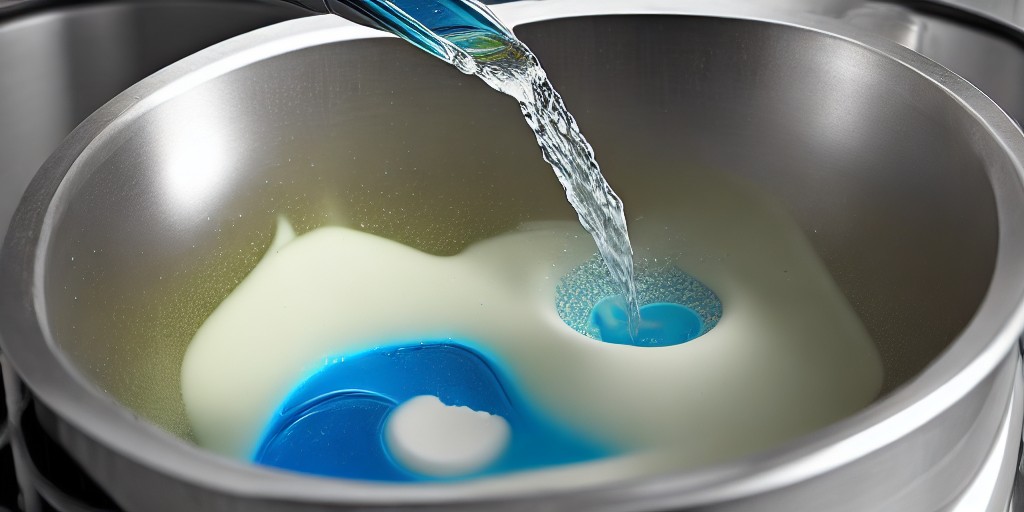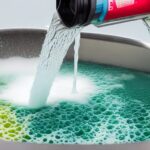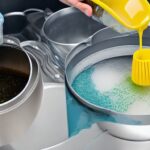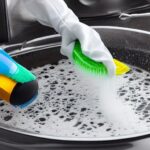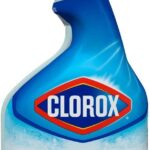As household cleaning products become increasingly popular, people often mix different chemicals together to achieve more effective cleaning. However, mixing certain chemicals can be extremely dangerous and can cause serious health problems. One of the most common questions people ask is whether Clorox and hydrogen peroxide can be mixed. In this article, I will explore the answer to this question and provide some useful tips for safe cleaning.
Household cleaning is an essential task to maintain hygiene and keep our homes free from harmful bacteria and viruses. Cleaning products like Clorox and hydrogen peroxide are popular among homeowners due to their effectiveness. However, mixing these two chemicals can be extremely dangerous and can cause serious health problems.
I will discuss the properties of Clorox and hydrogen peroxide, the risks of mixing them, and provide some tips for safe cleaning.
What is Clorox?
Clorox is a brand of bleach that is commonly used in households for cleaning and disinfecting surfaces. It contains sodium hypochlorite, which is a powerful oxidizing agent that can kill bacteria, viruses, and fungi. Clorox is effective against a wide range of microorganisms and can be used to clean and disinfect surfaces like floors, countertops, and bathrooms.
What is Hydrogen Peroxide?
Hydrogen peroxide is a colorless liquid that is commonly used in households for cleaning and disinfecting surfaces. It is a powerful oxidizing agent that can kill bacteria, viruses, and fungi. Hydrogen peroxide is effective against a wide range of microorganisms and can be used to clean and disinfect surfaces like floors, countertops, and bathrooms.
Can Clorox and Hydrogen Peroxide Be Mixed?
Clorox and hydrogen peroxide should not be mixed together as it can cause a dangerous chemical reaction. Mixing these two chemicals can create a highly reactive compound that can release harmful gases, cause an explosion, or ignite a fire. Therefore, it is highly recommended that you do not mix Clorox and hydrogen peroxide together.
What Happens When You Mix Clorox and Hydrogen Peroxide?
When Clorox and hydrogen peroxide are mixed together, a chemical reaction occurs that produces oxygen gas, heat, and water. This reaction can be highly exothermic, meaning that it releases a lot of heat. The oxygen gas produced can cause an explosion if it is not released from the container. The heat produced can also ignite nearby flammable substances, which can cause a fire.
Dangers of Mixing Clorox and Hydrogen Peroxide
Mixing Clorox and hydrogen peroxide can be extremely dangerous and can cause serious health problems. The reaction can release harmful gases, which can cause respiratory problems, skin irritation, and eye damage. The heat produced can also ignite nearby flammable substances, which can cause a fire. Therefore, it is highly recommended that you do not mix Clorox and hydrogen peroxide together.
Tips for Safe Cleaning
To ensure safe cleaning, it is important to follow some basic safety precautions. Here are some tips for safe cleaning:
Read the label:
Always read the label before using any cleaning product. Make sure that you understand the instructions and warnings before
using it.
Use one product at a time: It is important to use one cleaning product at a time and avoid mixing them together. Mixing different cleaning products can cause dangerous chemical reactions.
Ventilate the area:
When using cleaning products, it is important to ventilate the area by opening windows and doors. This can help to reduce exposure to harmful chemicals and prevent the buildup of toxic gases.
Wear protective gear:
When using cleaning products, it is important to wear protective gear like gloves, goggles, and a mask. This can help to protect your skin, eyes, and respiratory system from harmful chemicals.
Store products safely:
Cleaning products should be stored in a cool, dry place away from heat sources, direct sunlight, and flammable materials. Keep them out of reach of children and pets.
Alternatives to Clorox and Hydrogen Peroxide
If you are looking for safer alternatives to Clorox and hydrogen peroxide, there are many natural cleaning products that you can use. Some of these include:
Vinegar: Vinegar is a natural disinfectant that can kill bacteria, viruses, and fungi. It can be used to clean and disinfect surfaces like floors, countertops, and bathrooms.
Baking soda: Baking soda is a natural abrasive that can be used to clean and deodorize surfaces like sinks, tubs, and toilets.
Lemon juice: Lemon juice is a natural bleach that can be used to whiten clothes and clean surfaces like countertops and cutting boards.
Essential oils: Essential oils like tea tree oil, lavender oil, and eucalyptus oil have antimicrobial properties and can be used to clean and disinfect surfaces.
Conclusion.
In conclusion, mixing Clorox and hydrogen peroxide can be extremely dangerous and can cause serious health problems. These two chemicals should never be mixed together as they can cause a dangerous chemical reaction that can release harmful gases, cause an explosion, or ignite a fire. To ensure safe cleaning, it is important to follow basic safety precautions and use natural cleaning products as alternatives.
FAQs on Can Clorox and Hydrogen Peroxide Be Mixed?
Can I use Clorox and hydrogen peroxide on different surfaces at the same time?
No, it is important to use one cleaning product at a time and avoid mixing them together. Mixing different cleaning products can cause dangerous chemical reactions.
What should I do if I accidentally mix Clorox and hydrogen peroxide together?
If you accidentally mix Clorox and hydrogen peroxide together, leave the area immediately and call emergency services.
What are the risks of mixing Clorox and hydrogen peroxide?
Mixing Clorox and hydrogen peroxide can release harmful gases, cause an explosion, or ignite a fire. It can also cause respiratory problems, skin irritation, and eye damage.
Can I use natural cleaning products as alternatives to Clorox and hydrogen peroxide?
Yes, there are many natural cleaning products like vinegar, baking soda, lemon juice, and essential oils that can be used as alternatives to Clorox and hydrogen peroxide.
How can I ensure safe cleaning?
To ensure safe cleaning, it is important to follow basic safety precautions like reading the label, using one cleaning product at a time, ventilating the area, wearing protective gear, and storing products safely.
